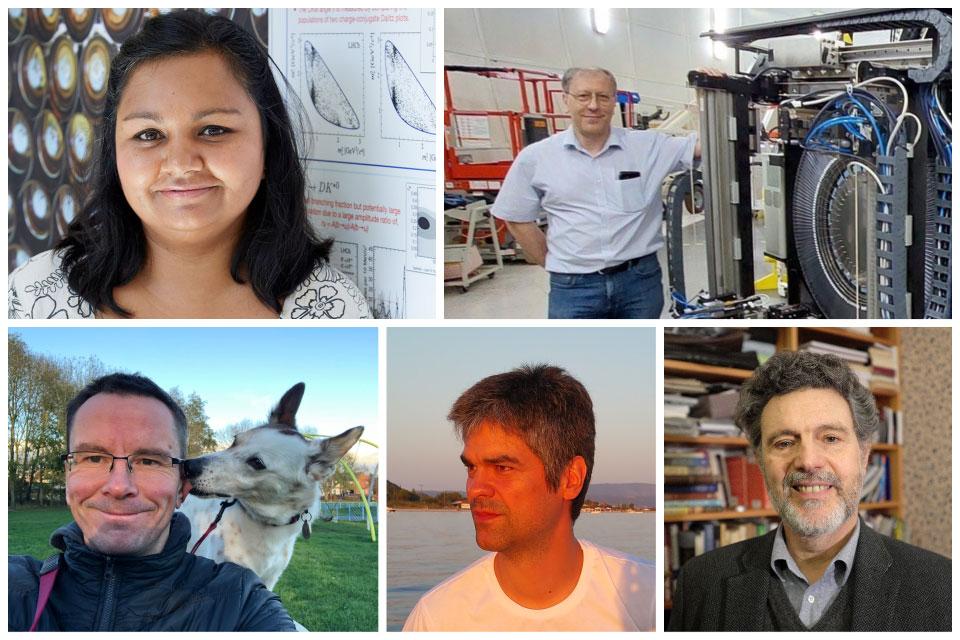Five academics in the Department of Physics have been recognised in the Mathematical, Physical and Life Sciences Division’s inaugural Awards for Outstanding Research Supervision: Professor Gavin Dalton, Professor Matt Jarvis, Professor Aris Karastergiou, Dr Sneha Malde and Professor Paolo Radaelli. The awards recognise and celebrate the supervisors and research group leaders who demonstrate leadership and best practice by nurturing and supporting research colleagues in their role as DPhil supervisors or research group leaders; they recognise those who excel in their everyday supervision of colleagues and professional commitment to people development. A minimum of two nominations per entry were required with each entry supported by the Head of Department.
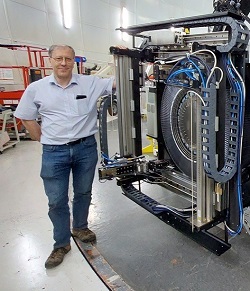
Gavin Dalton
The welcoming atmosphere that Gavin provides for his researchers when they arrive is commented on in the nominations the judging panel received, as is his approach to work: he has a balanced and supportive way of working; he respects researchers’ initiative but also provides support where needed; and he takes a collaborative approach to problem solving that values the contributions made by others.
Nominations highlight how Gavin engages with his researchers and is attentive to them, supporting them with technical issues, responding quickly to emails, and proofreading documents at short notice. He is also open to receiving feedback himself. He supports flexible working and he sacrifices his own time for the team members. He not only engages with colleagues over work matters but also cares and supports them in the difficulties they might face outside of work. One group member noted how valued and appreciated they felt after Gavin’s encouragement and public recognition of their work, and another nominator expressed their gratitude for his help with career development. This quote sums up the views of the colleagues who nominated Gavin for this award: ‘In short, I have always felt seen and heard by Gavin, a way of being that I strive to emulate when I am mentoring younger researchers myself.’
‘It is great to see that the division has adopted this scheme, and to know that we are providing an environment that’s appreciated.’
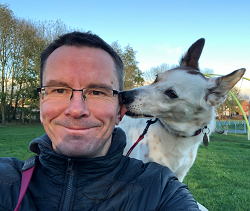
Matt Jarvis
Matt’s award nominations highlighted his warm and welcoming attitude to new researchers arriving in his group. They mentioned his non-hierarchical approach as a supervisor. He focuses on building strong individual relationships and taking time to get to know individuals, enabling people to express themselves and develop their own ways of working. His group is very diverse, with a gender balance and a diversity of nationalities represented. He is open to advice and suggestions about how things can be improved and he acts as a sponsor to group members and others in the department, sharing his networks with them.
Matt’s research group members are encouraged to take leadership roles and to become independent researchers. Within this atmosphere of trust, he enables people to present their research, become lead authors and develop their own collaborations. He is always on hand to offer advice or support. He focuses on issues such as mental health, and bullying and harassment, and is always available to support people when they need it. He supports people to access available training and development opportunities and has created a thriving environment for his research group, in which people feel confident and relaxed at work.
‘This award means a huge amount to me, as it comes from the people I supervise and line manage. Helping young researchers to fulfil their ambitions is the most rewarding part of my job, and to know that those people think I am doing a good job is reassuring and gives me confidence that we are moving in the right direction together.’
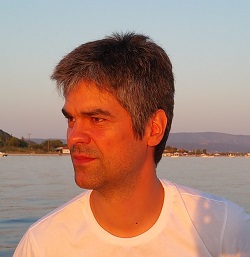
Aris Karastergiou
According to his nominations, Aris creates a positive, welcoming work environment for his research group and supports their interactions with departmental colleagues and in international collaborations. His leadership is characterised by a focus on equality, inclusivity, encouragement and positivity. He opens up his home to the research group, to help build team cohesion and he devotes much of his time to individual members of the research group as well as team meetings.
Aris has strong pastoral skills, caring for the whole person, especially when they face personal difficulties. As a supervisor he is enthusiastic about the research process and open to any sort of question from colleagues. He acts as a sponsor for others, opening up his network and encouraging people to seize opportunities to develop themselves. Aris focuses on the welfare of researchers, helping them with issues as they arise, from the technical through to the personal. He is described as an exemplar for successful research leadership.
‘I feel grateful to the students and postdocs I have had the privilege to supervise, who have excelled at their work and enriched my life in the process. This award feels like a recognition of the positive spirit and trusting relationships in the group, that have underpinned our achievements.’
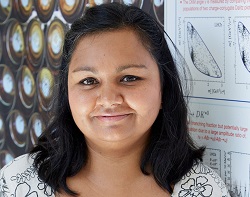
Sneha Malde
Sneha is recognised by others in her group as a highly effective supervisor because she is extremely knowledgeable and compassionate, and dedicated to the success of others. She collaborates with her supervisees to come up with rigorous solutions to any problems they encounter. She empowers them and supports their development through her insights, leadership and vision. She also supports her researchers with their career development, even when their aspirations are at odds with her own research goals.
Sneha encourages a good work-life balance but sets the highest standards at work. She encourages her students to apply for fellowships and spends considerable time giving feedback on the applications they write. During difficult personal and professional times, Sneha is always on hand to support and guide her researchers. She is described as very trustworthy and always delivers on her promises. She also advocates for early-career physicists across the UK.
‘I am extremely honoured to have the award and deeply touched that so many of my team took the time to nominate me. I have plenty of ideas as a researcher, but it is my team that put them into action and do the hard work to achieve the scientific output. It is a privilege to work with such talent and have the opportunity to support and propel them to their full potential. There are many aspects of early career life that are not easy and I am glad that I can help my team navigate their way through. I am delighted that the division has chosen to recognise this aspect of a principal investigator’s job.’
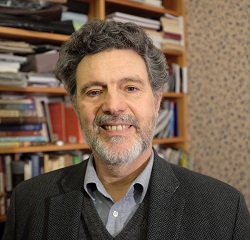
Paolo Radaelli
Paolo is described as an excellent teacher and mentor in his nominations. From helping to develop his students’ research vision, to giving guidance and feedback on specific technical matters, his teaching and supervision style is to guide and enable people to learn through observations and find their own solutions. He is friendly and approachable at work and he encourages research students to network and collaborate. He enables an atmosphere within the group that allows freedom of discussion about experimental and theoretical physics.
Paolo also encourages a good work-life balance and takes great interest in researchers’ goals, often championing their work at scientific meetings. He discusses career development and gives his group members leadership opportunities such as mentoring more junior colleagues, developing grant proposals, or taking a lead in experiments. He is described as being always available to his students, who appreciate everything he does for them, including his personal warmth.
‘My first reaction when I learned about this award was complete surprise. Unbeknownst to me, someone in my group must have nominated me and collected testimonials from present and past DPhil students and post-docs, for which I am deeply grateful. What is especially puzzling is that I do not normally do any of the things that supposedly make one popular with students, such as going to outings, pub crawls etc. So, what is my ‘recipe’, one might ask? I can sum up in one sentence: I believe in my students and post docs and in their potential to be independent scholars. I set very high expectations for them, I never micromanage them when they can do things on their own, and I am always there to support them and challenge them when they need it. It seems to work…’
‘To have five of the 13 winners in the Department of Physics is just wonderful,’ concludes Professor Ian Shipsey, Head of Department. ‘We are incredibly proud of our world-leading research endeavour and we are only able to fulfil our mission of applying the transformative power of physics to the foremost scientific problems thanks to the excellence of our people. My research colleagues work with integrity and compassion to create an environment where everybody can flourish – these awards are testament to that.’

